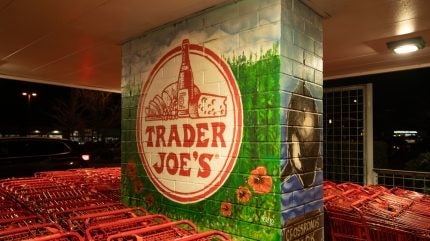
Private label products are gaining significant ground in the retail sector as consumers increasingly turn to store brands amid rising prices and shifting attitudes towards brand loyalty.
Recent research from Mintel highlights that nearly 70% of US adults are now more open to purchasing private label items, with over half expecting to increase their store brand purchases in the coming year.

Discover B2B Marketing That Performs
Combine business intelligence and editorial excellence to reach engaged professionals across 36 leading media platforms.
Changing consumer behaviour drives private label growth
Once seen merely as low-cost alternatives, private label brands are now redefining consumer expectations. Factors such as persistent inflation and a desire for better value are contributing to their rise, but it’s not just about cost-cutting.
Consumers report being drawn to private label products for their perceived quality, innovation, and branding improvements.
In fact, more than half of private label shoppers say they feel like savvy buyers, and many take pride in using store brands. This sense of smart consumption is influencing shopping patterns, with nearly six in ten consumers choosing to shop at specific retailers because of their private label offerings.
However, selectivity remains: shoppers are often loyal to store brands from particular retailers, indicating that not all private labels are viewed equally.

US Tariffs are shifting - will you react or anticipate?
Don’t let policy changes catch you off guard. Stay proactive with real-time data and expert analysis.
By GlobalDataKey product categories see growing private label demand
Private label brands are experiencing strong demand in several core categories.
Food and beverage items, household essentials, over-the-counter medication, clothing, personal care, and vitamins are among the segments where store brand popularity is climbing.
Consumers are increasingly finding that these products meet or even exceed their expectations, offering value with minimal compromise on quality.
This shift from occasional purchases to habitual buying shows high levels of satisfaction and growing trust. Over half of private label customers express intent to repurchase, suggesting that store brands have moved beyond being substitutes to becoming preferred choices in their own right.
Private label evolves from budget option to trendsetter
Retailers are investing in product development and branding to make their private labels stand out. No longer confined to plain packaging and basic offerings, today’s store brands often feature on-trend flavours, premium ingredients, and stylish design.
Retailers like Walmart, Target, and Trader Joe’s are positioning their private label lines as both cost-effective and aspirational.
Among younger demographics, particularly Gen Z, private labels are gaining social currency. Brands such as Costco’s Kirkland and Target’s Favourite Day are being embraced not just for value, but also for style and innovation.
Walmart’s Bettergoods line and Walgreens’ Premium Skin Care are among several new launches aimed at meeting specific consumer preferences while maintaining affordability.
As private label brands continue to evolve, they are no longer simply a fallback for cash-strapped consumers but are becoming central to retail strategies and shopping habits.
While legacy brands are not disappearing, the landscape is shifting—forcing traditional names to reconsider how they compete in an era where quality, price, and innovation are no longer mutually exclusive.



